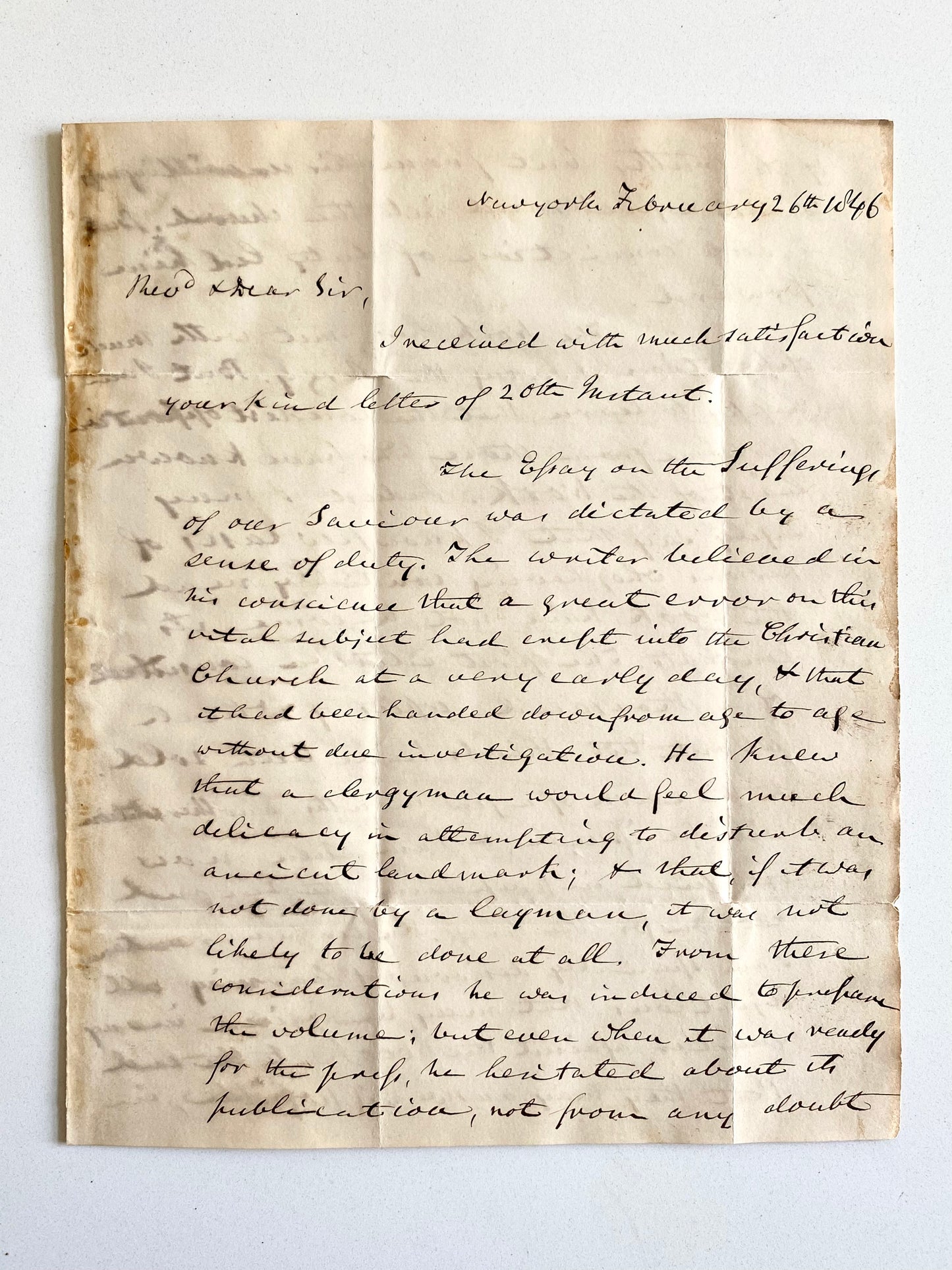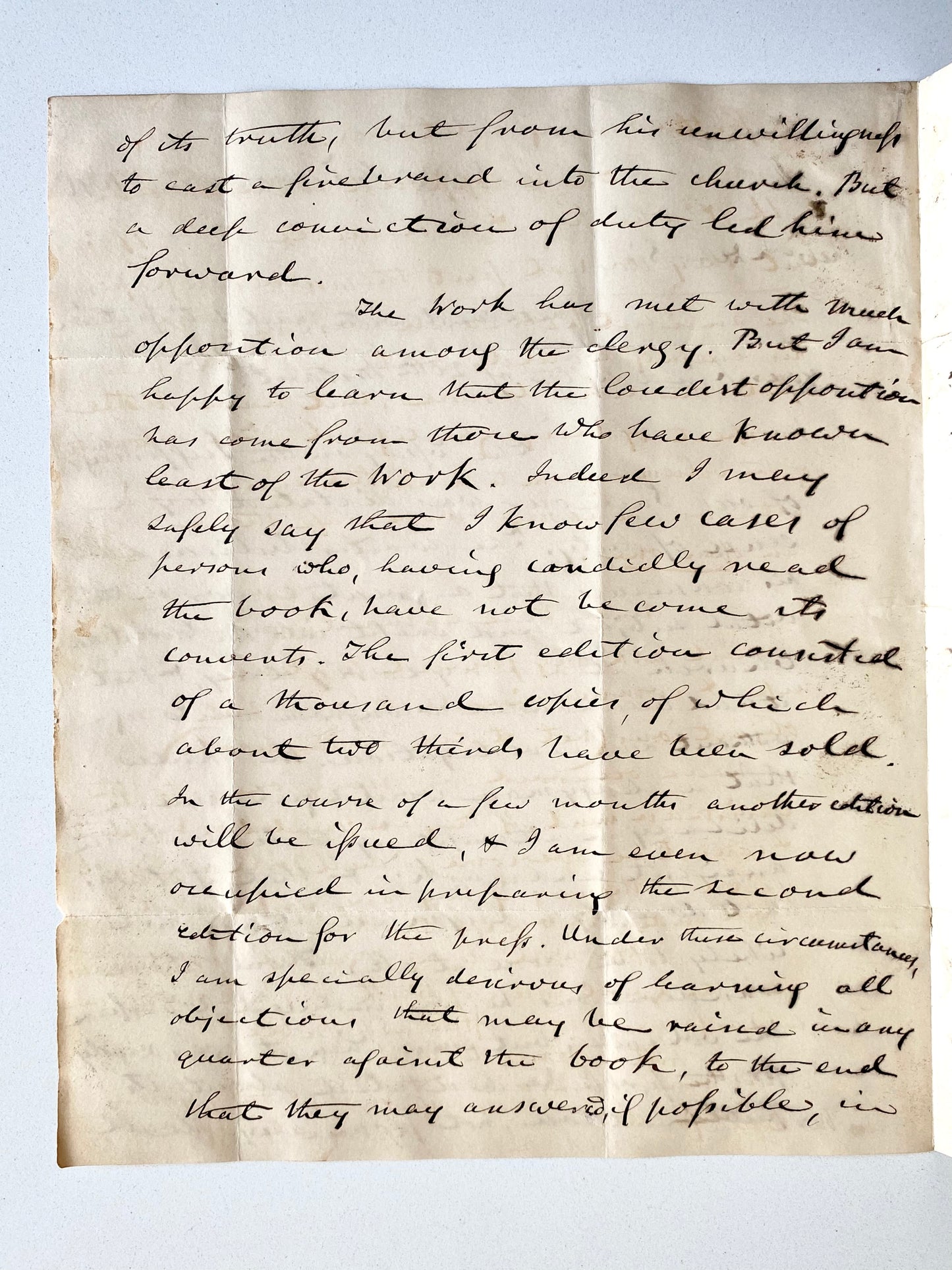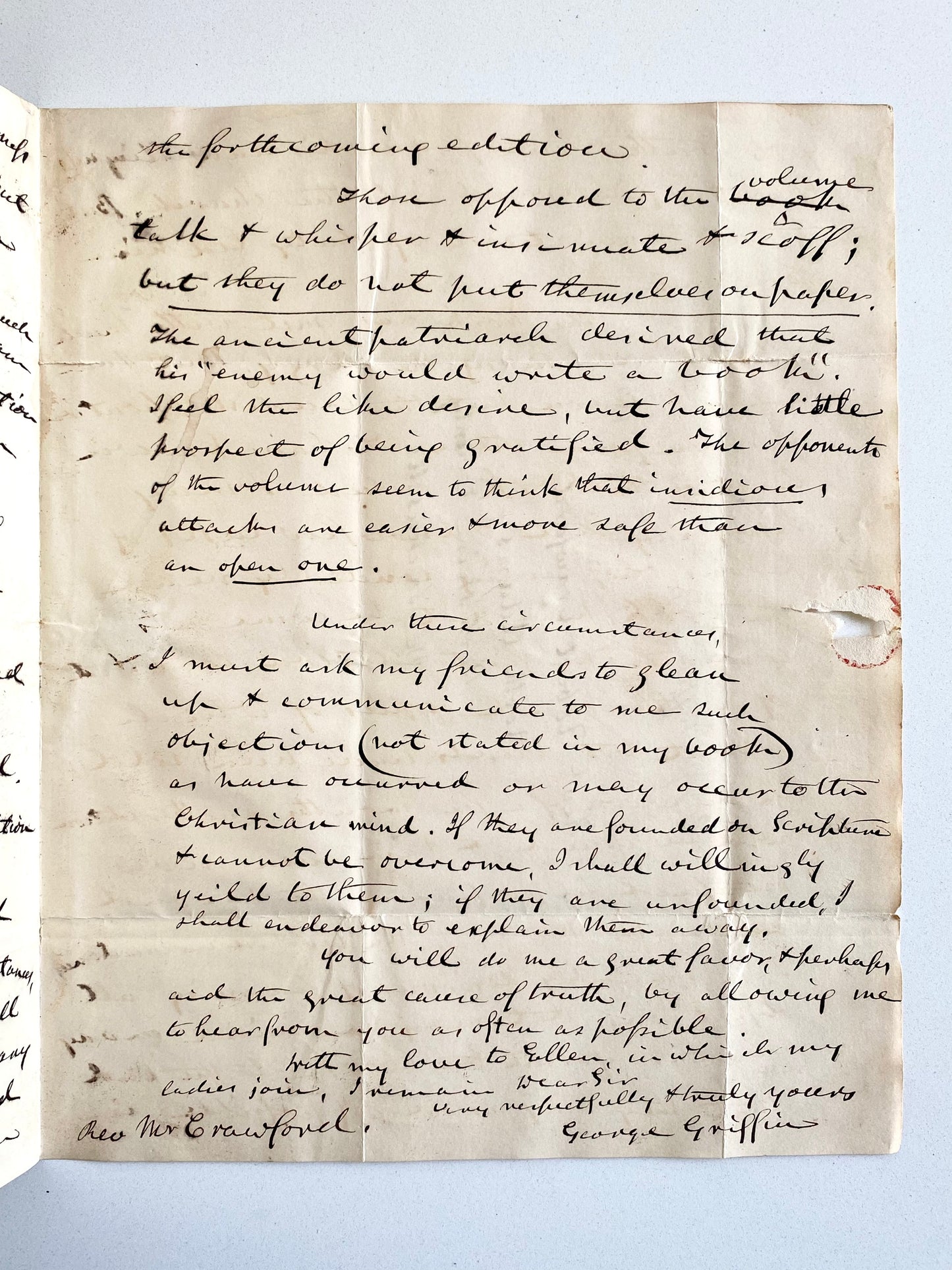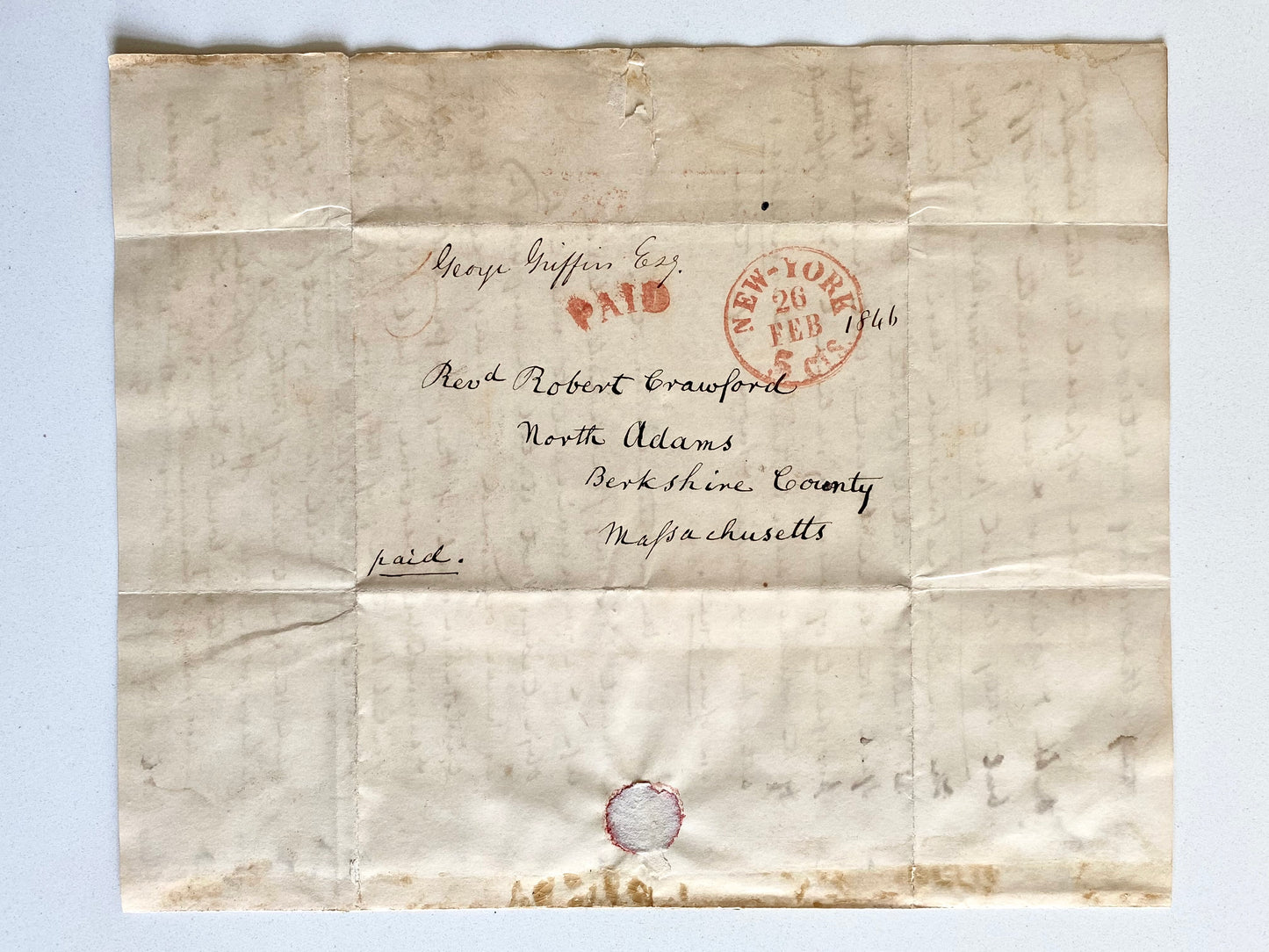Specs Fine Books
1846 GEORGE GRIFFIN. Letters on Atonement Theology by Author of Important Work on Sufferings of Christ in His Deity.
1846 GEORGE GRIFFIN. Letters on Atonement Theology by Author of Important Work on Sufferings of Christ in His Deity.
Couldn't load pickup availability
Fascinating pair of letters by George Griffin, Esq regarding the publication and reception of his influential and highly controversial work on the “divine sufferings of Christ” in the atonement. Published in 1845, Griffin’s work pushed back on 1500 years of received theology, which he freely admits. He asserts that the Church, theologically, loses a crucial piece of the metaphysics of the atonement; and pastorally, loses a powerful devotional element of the atonement when only the “man” part of the “God-man” Christ Jesus participates in the real sufferings of the cross.
It unleashed a firestorm, and elicited book and extensive periodical responses from Bennet Tyler [The Sufferings of Christ Confined to His Human Nature, 1847] and many others.
George Griffin was the brother of influential pastor, evangelist, and President of Williams College, Edward Dorr Griffin. The letters are both addressed to Rev. Robert Crawford, son-in-law of Edward Dorr Griffin, and thus related to George by marriage.
Excellent letters. Charming and interesting that George whimsically calls’ Crawford’s wife, Ellen, “Mrs. Professor Hopkins” [i.e. Samuel Hopkins] and states that he has utilized some of her theological suggestions.
Letter One:
New York, February 26, 1846
Revd & Dear Sir,
I received with much satisfaction your kind letter of 20th Instant.
The Essay on the Sufferings of our Saviour was dictated by a sense of duty. The writer believed in his conscience that a great error on this vital subject had crept into the Christian Church at a very early day, & that it had been handed down from age to age without due investigation. He knew that a clergyman would feel much delicacy in attempting to disturb an ancient landmark; & that, if it was not done by a layman, it was not likely to be done at all. From these considerations, he was included to prepare the volume; but even when it was ready for the press, he hesitated about its publication, not from any doubt of the truth, but from his unwillingness to cast firebrand into the church. But a deep conviction of duty led him forward.
The work has met with much opposition among the clergy. But I am happy to learn that the loudest opposition has come from those who have known least of the work. Indeed I may safely say that I knew few cases of persons who, having candidly read the book, have not become its converts. The first edition counted of a thousand copies, of which about two thirds have been sold. In the course of a few months another edition will be issued, & I am even now occupied in preparing the second Edition for the press. Under these circumstances, I am specially desirous of learning all objections that may be raised in any quarter against the book, to the end that they may [be] answered, if possible, in the forthcoming edition.
Those opposed to the volume talk & whisper & intimate & scoff; but they not put themselves on paper. The ancient patriarch derived that his “enemy should write a book.” I feel the like desire, but have little prospect of being gratified. The opponents of the volume seem to think that invidious attacks are easier & more safe than an open one.
Under these circumstances, I must ask my friends to glean up & communicate to me such objections (not stated in my book) as have occurred or may occur to their Christian mind. If they are founded on Scripture & cannot be overcome, I shall willingly yield to them; if they are unfounded, I shall endeavor to explain them away.
You will do me a great favor, & perhaps aid the great cause of truth, by allowing me to hear from you as often as possible.
With my love to Ellen, in which my ladies join, I remain Dear Sir,
Very respectfully & truly yours
George Griffin.
Letter Two:
New York, November 5th, 1846
Rev. & Dear Sir,
The second edition of “The Sufferings of Christ by a Layman” has recently issued from the press, enlarged by new matter, equivalent in quantity to one fourth of the original volume.
I have laid aside a coy for you, & another copy for Mrs. Professor Hopkins. You will please to designate the mode in which the copies are to be transmitted to you. The very talented Lady will find some of her own suggestions incorporated into the new edition.
With love to Ellen, I remain
Very truly yours,
Geo. Griffin.
P.S. I have the most satisfactory evidence that the Great Truth; to which my humble & imperfect labors have been devoted, is making its way extensively throughout the United States.
It is proper that it should be known to country clergymen that the price of the new edition has been reduced to fifty cents, with a view of rendering it more accessible to every person who may be disposed to read it.
Very good state; minor indications of removal.
Share








